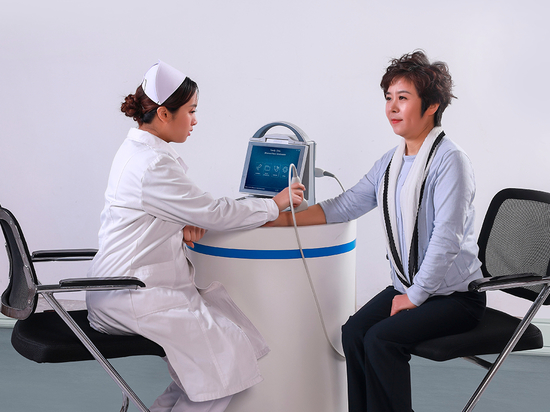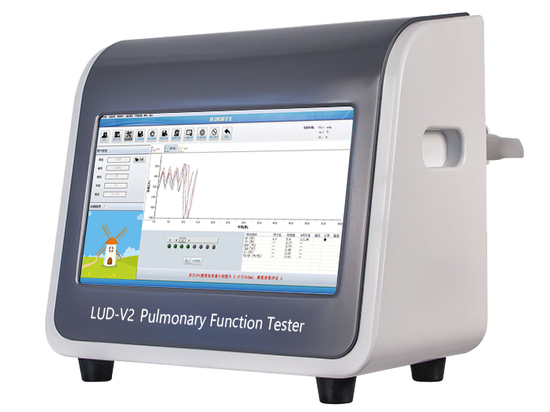
#Industry News
Arteriosclerosis detector: a key assessment tool for vascular health
Arteriosclerosis detector plays a key role in the prevention, diagnosis, treatment and health management of cardiovascular diseases.
Every beat of the heart is the embodiment of life vitality. But what is little known is that the blood vessels that carry the heavy burden of oxygen and nutrition are facing serious challenges with the passage of time and the impact of bad lifestyle habits. Arteriosclerosis, as a pathological phenomenon in which the blood vessel wall gradually stiffens and reduces elasticity, may cause various cardiovascular diseases and seriously threaten human health. In this context, arteriosclerosis detector plays an important role as an important medical device for accurately evaluating the health status of blood vessels.
Arteriosclerosis detector is mainly used to quantitatively evaluate the degree of arteriosclerosis and provide scientific basis for a comprehensive understanding of vascular health. Its value in clinical application is reflected in several aspects:
Early risk screening: Arteriosclerosis is often more insidious in its early stages and lacks typical symptoms. However, for people with chronic diseases such as hypertension, hyperlipidemia, diabetes, and obesity, vascular lesions may have quietly occurred. Arteriosclerosis detector can accurately identify abnormal vascular function in the subclinical stage of the disease, provide early warning for such high-risk groups, so as to take timely intervention measures to prevent the occurrence and development of cardiovascular diseases.
Disease diagnosis aid: The monitor provides objective and quantitative data support for doctors in the clinical diagnosis of arteriosclerotic related diseases. By accurately measuring the extent and extent of arteriosclerosis, doctors can accurately judge the severity of the condition and effectively identify different types of vascular lesions, so as to develop more accurate and personalized treatment plans.
Dynamic monitoring of disease: For patients with confirmed arteriosclerosis or cardiovascular disease, regular arteriosclerosis detection is an important means to track the change of disease and evaluate the treatment effect. According to the test results, doctors can intuitively understand the effect of treatment measures on vascular status, and timely adjust treatment strategies to ensure that patients' conditions are effectively controlled and treatment effects are improved.
Prognosis assessment and prediction: Arteriosclerosis detector has significant advantages in predicting the risk of cardiovascular events, and can help doctors to quantitatively evaluate the possibility of serious diseases such as myocardial infarction and stroke. Based on the test results, doctors can provide patients with personalized health management recommendations to improve patient outcomes and improve quality of life.
Health management and prevention: In the field of health examination, the arteriosclerosis detector helps to develop a comprehensive health management plan for the individual. Based on the test results, professionals can provide comprehensive recommendations for patients, including diet adjustment, exercise planning and necessary drug intervention, to delay arteriosclerosis process and promote cardiovascular health. Especially for middle-aged and elderly people and individuals with high risk factors such as family history of cardiovascular and cerebrovascular diseases and bad lifestyle, regular arteriosclerosis detection is an important measure to maintain blood vessel health.
In general, arteriosclerosis testing is recommended for the following groups:
Adults aged 20 years and older should be concerned about their vascular health and can be tested when appropriate.
Patients who have been diagnosed with hypertension (including borderline hypertension), hyperlipidemia, diabetes, obesity, coronary heart disease or stroke should be tested regularly to monitor changes in their condition.
Individuals with a family history of early onset cardiovascular disease who are at higher risk due to genetic factors should pay attention to vascular health screening.
People with long-term risk factors for cardiovascular and cerebrovascular diseases such as smoking, high-fat diet, lack of exercise, and excessive mental pressure can find potential vascular problems in time through detection.
For individuals who have symptoms of precardiac discomfort such as chest tightness or palpitations after activity or at rest, but have not yet been diagnosed, testing can help to identify the cause.
General health examination people can comprehensively understand their own blood vessel health status through this test, and provide a basis for health management.
Arteriosclerosis detector plays a key role in the prevention, diagnosis, treatment and health management of cardiovascular diseases. Through the scientific application of this detection method, we can have a more comprehensive and in-depth understanding of vascular health, and provide a strong guarantee for maintaining the long-term stability and health of the cardiovascular system. It is suggested that eligible people should actively carry out arteriosclerosis detection and jointly protect blood vessel health.






